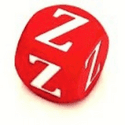Knowledge Management vs. Document Management: What's Best for Your Organization?
Knowledge Management vs. Document Management: What's Best for Your Organization?
When setting up systems to manage your company’s information, understanding the distinct roles of knowledge management and document management can considerably enhance your organizational efficiency. But how do these systems differ, and which one fits your needs best?
Document Management
The focus is on the storage and retrieval of documents (like PDFs, Word files). It’s about keeping things organized and ensuring that information is easy to access and track, improving operational efficiency.
Knowledge Management
On the other hand, knowledge management takes a broader approach. It’s not just about storing information but capturing the collective insights and experiences of your team. This system promotes innovation and better decision-making by making shared knowledge accessible.
Key Differences:
- Scope: Document management is narrower, handling only structured documents. Knowledge management has a broader reach, incorporating unstructured, tacit knowledge like employee insights and industry trends.
- Purpose: Document systems improve retrieval efficiency. Knowledge systems aim to foster a smarter workforce and revolutionary ideas.
- Information Types: Document management deals with explicit knowledge. Knowledge management includes both tacit (experiential) and explicit (recorded) knowledge.
Why It Matters
Choosing the right system matters because it aligns with strategic objectives—whether that’s streamlining access to documents or fostering a culture of continuous learning and innovation.
Has your company explored the distinct advantages of both systems? Which system do you find most impactful for maintaining efficiency and fostering innovation?
#KnowledgeManagement #DocumentManagement #BusinessEfficiency #Innovation #EnterpriseSolutions #OrganizationalLearning #Zoho
Zoho Frequently Asked Questions
What is Knowledge Management and why is it important?
Knowledge Management involves the process of creating, sharing, using, and managing the knowledge and information of an organization. It is important because it helps in reducing redundancy, improves decision-making, fosters innovation, and enhances business efficiency.
How can Document Management improve business efficiency?
Document Management improves business efficiency by organizing and storing documents efficiently, enabling easy retrieval, reducing paper usage, and improving data security. This leads to faster decision-making and reduced operational costs.
How does Organizational Learning contribute to innovation?
Organizational Learning fosters innovation by encouraging a culture where employees can share and develop new ideas freely. This continuous learning and improvement process leads to innovative solutions that can give organizations a competitive edge.
What role does Zoho play in enhancing Information Management?
Zoho offers a suite of enterprise solutions that enhance information management through tools designed for collaboration, data storage, business analytics, and automation, thus enabling organizations to efficiently handle and retrieve large volumes of information.
Why is Collective Knowledge crucial for an enterprise?
Collective Knowledge refers to the shared information and understanding within an organization. It is crucial as it leverages the collective expertise for better problem solving, enhances productivity, and drives strategic planning and innovation in enterprises.
